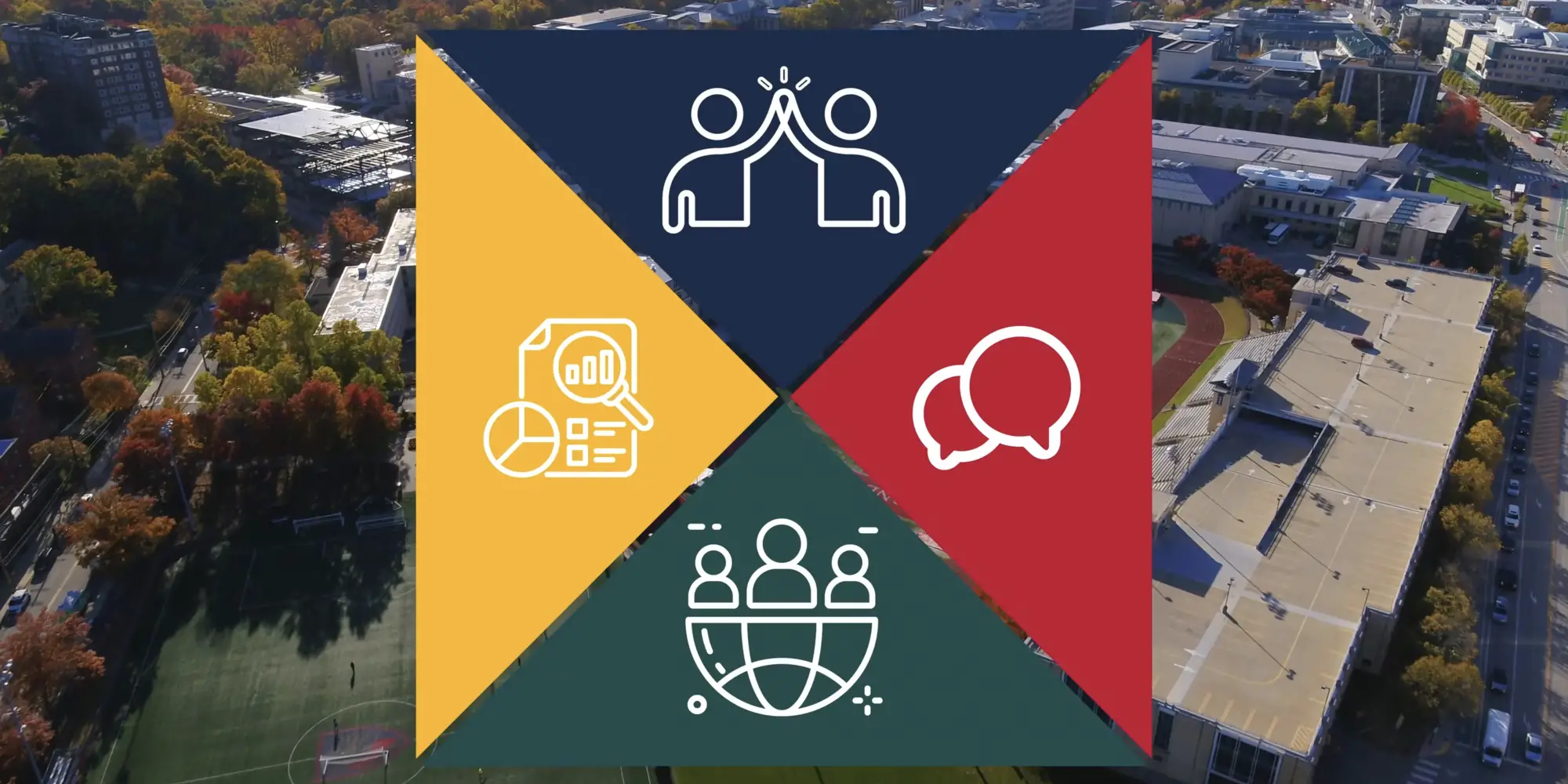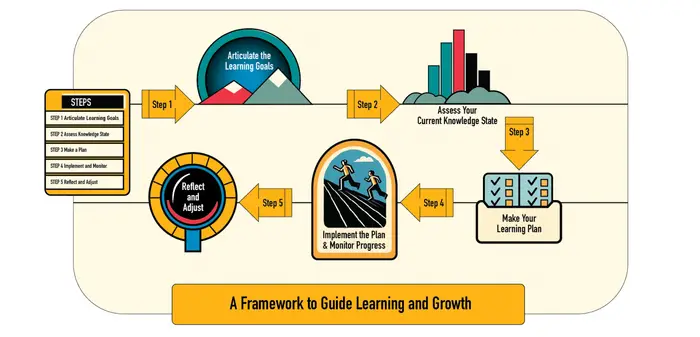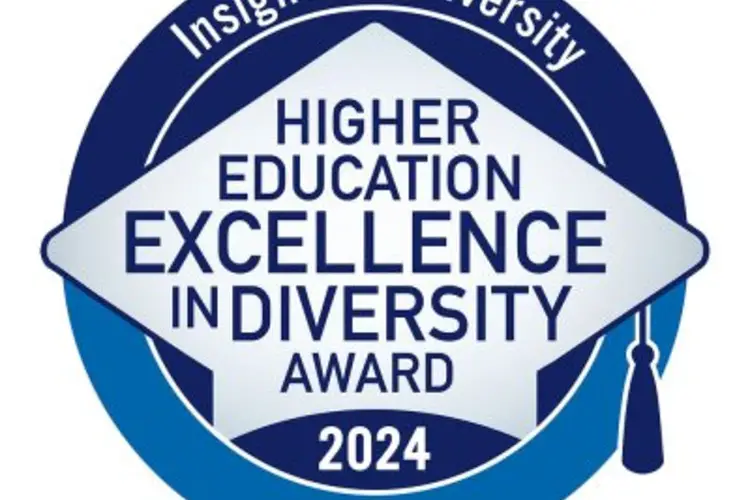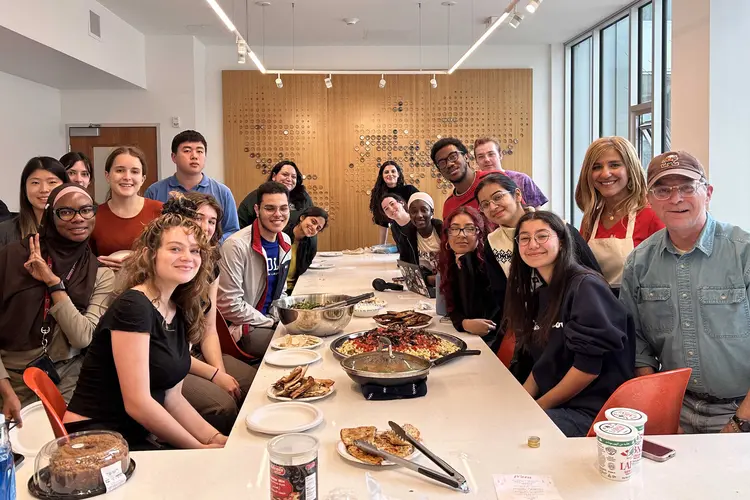
New Course Teaches Core Skills at Carnegie Mellon
Media Inquiries
Carnegie Mellon University has introduced a new course, Core@CMU(opens in new window), that helps undergraduates develop the skills that serve as a foundation for their education at the university. The course is a 3-unit, semester-long requirement for all undergraduates. It is asynchronous and can be completed entirely online, allowing for flexibility and ease of access.
The course focuses on essential capabilities that will serve students beyond graduation, regardless of their chosen discipline or professional path: Collaboration and Teamwork; Communication and Presentation; Information and Data Literacy; and Intercultural and Global Learning plus Diversity, Equity and Inclusion.
In order to provide CMU students with a more holistic experience and prepare them for wherever their professional journeys may take them, Core@CMU gives students the opportunity to improve key abilities in each of these areas, including but not limited to writing, teamwork, cultural literacy and statistical reasoning.
Historically, Carnegie Mellon has not had a university-wide education requirement with such a broad focus, but standards and prerequisites for graduation exist within each individual college. Over a dozen subject-matter experts from a variety of fields helped create the course, taking an iterative approach to its development to determine the most essential skills for all students.
Perhaps most significantly, the course includes information on evidence-based learning strategies to help ensure that students have the tools necessary to facilitate their own approaches to learning long after they complete the course.
The Core@CMU Steering Committee led the project by envisioning a new approach to core competencies education at CMU and designing this course as a key, foundational step in that journey.
- Amy Burkert, Senior Vice Provost for Academic Initiatives
- Judy Brooks, Director of Design, Technology-Enhanced Learning & Online Programs
- Joanna Dickert, Director of the Core Competencies Initiative
- April Hawk, Senior Academic Program Manager for Core@CMU
- Marsha Lovett, Vice Provost for Teaching & Learning Innovation
- Reya Saliba, Instruction & Outreach Librarian for CMU-Q
Building on past courses
Joanna Dickert is associate dean of student experience assessment and the director of the Core Competencies Initiative(opens in new window). As one of the members of the Core@CMU Steering Committee, Dickert oversaw the development of the course from its previous iterations.
"Core competencies are a collection of essential skills that are important for success across many disciplines and professions," Dickert said.
The course is a new instantiation of the 99101 university-wide undergraduate course requirement, which went by two names: the Computing Skills Workshop (CSW) and Computing at Carnegie Mellon (C@CM).
"We had four committees that worked over a number of years to define each of the core areas, identify where learning and practice opportunities were, and then develop a set of recommendations for where we go next," Dickert said.
Core@CMU utilizes the same course number — 99101 — as its predecessors. However, after identifying the four core areas of growth critical for the success of Carnegie Mellon students, the content of the course has expanded beyond its original curriculum, which taught subjects like word processing and Unix skills. The university's updated approach also includes the creation of a new dashboard(opens in new window) for students that displays course curriculum activities and more where they can continue their skill building.
Designers and Project Managers
- Lynn Kojtek, Learning Engineer, Eberly Center
- Simone D’Rosa, Strategic Projects Manager, Office of the Vice Provost for Teaching & Learning Innovation
@CMU and Beyond: Helping Students Become Industry Leaders
Judy Brooks(opens in new window) is director of design for technology-enhanced learning in Carnegie Mellon's Eberly Center for Teaching Excellence and Educational Innovation(opens in new window), and directed the design of the course.
"This is our first offering," Brooks said of the course. "We had lots of leadership engagement, and myself and my team of learning engineers met with subject matter experts to develop each one of these modules."
Some of the experts included Mark D'Angelo(opens in new window), a diversity, equity, and inclusion learning and development consultant for Carnegie Mellon, Joelle Pitts(opens in new window), principal librarian at CMU, and Candace Skibba(opens in new window), associate teaching professor of Hispanic studies.
Brooks also explained that much of the course's design was — and will continue to be — iterative, changing in response to feedback from students, alumni and other stakeholders about what early career professionals should know after graduating.
"Employers know that CMU students will come out with disciplinary expertise. We're well renowned for that, and when our students graduate, they're capable, intelligent, and their disciplinary knowledge is baked in," Brooks said. "But employers also say they want students to have these types of core competencies. This initial version of the course is just the beginning; we will continuously improve the course in alignment with the core competencies we know employers want.”
Subject-Matter Experts contributed their expertise in the Core4 areas by crafting the course’s instructional content and learning activities.
- Allen Brown, Doctoral student in Business Administration
- David Brown, Associate Teaching Professor of English
- Mark D’Angelo, DEI Learning and Development Trainer
- Joelle Pitts, Principal Librarian
- Candace Skibba, Associate Teaching Professor of Hispanic Studies
- Emma Slayton, Senior Librarian
- Liz Walker, Doctoral student in English
- Anita Woolley, Professor of Organizational Behavior and Theory
A student-centered experience
April Hawk serves as senior academic program manager in the Core Competencies Initiative.
“We have students who are incredibly driven and focused. But beyond that disciplinary expertise, there are a lot of key skills that will be necessary for whatever their next step may be,” she said. Core@CMU is meant to supplement each undergraduate’s discipline of choice as well as the general education requirements within each college.
Hawk, who was also a teaching assistant for the original Computing Skills Workshop course as an undergraduate student at CMU, says that much of the feedback and support that has been critical for the course has come from students themselves.
"We've had a really dedicated staff of undergraduate teaching assistants," Hawk explained. "They are all involved in a variety of activities across campus, they come from a range of majors, and have a lot of different perspectives, which I think is critical for Core@CMU. They’re well positioned to serve as peer educators for a large number of the students taking the course."
Looking to the future, the Core Competencies team hopes to offer similar opportunities for students at the graduate level to refine their skills. One potential framework is the CMU Student IronViz Challenge(opens in new window), a hackathon that allows students to utilize data visualization skills to showcase their work and interests.
For both undergraduate and graduate student populations, the team hopes to use student feedback collected via course activities, surveys and focus groups to continue improving the experience, and to help students holistically strengthen their skill sets. “I think it’s a hallmark of our institution that students are able to dive into their fields of study, but there is so much more beyond just having disciplinary knowledge,” Hawk said. “I think that through the core competencies, this coordinated effort sets the foundation for students to succeed at CMU and beyond.
“We really want this to be choose-your-own-adventure. Students know what their interests are, and by having them do some reflection at the start of the course, we hope that it can help them reflect on what they’ve already done and where they want to go.”
Student Contributors provided input on the course from conception to completion and also shared their experiences developing and leveraging Core4 skills.
- Student Senate Academic Affairs Committee Representatives (AY23-24)
- Remi Adeoti, TPR, Business Administration, 2023
- Tatyana Cruz, ENG, Electrical & Computer Engineering, 2026
- Kenechukwu Echezona, SCS, Computer Science, 2026
- Elaine Gombos, SCS, Computer Science, 2027
- Charlie Hymowitz, CFA, Architecture, 2026
- Lilianne Kouyaté, CFA, Architecture, 2028
- Kelli Kuramoto, HNZ, Information Systems, 2024
- Tian LeGrande, MCS, Biological Sciences, 2027
- Brendan McCullough, DC, 2027
- Mathea Myhrvold, ENG, Mechanical Engineering, 2023 & 2024
- Shree Patel, MCS, Chemistry, 2019
- Sydney Prescott, MCS, Chemistry, 2025
- Jasio Santillan, ENG, Materials Science & Engineering, 2018 & 2019



